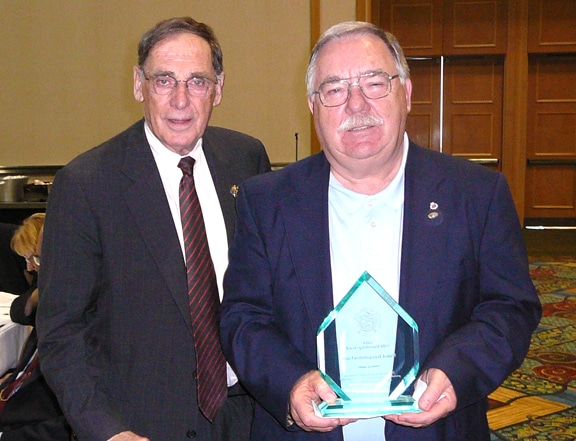By Retired UTU GS&T Dan Johnson
In the February issue of UTU News, it was explained that the Railway Labor Act (RLA) is purposely designed to encourage both sides to reach a mutually acceptable solution that keeps the trains running.
Railroad contracts have no expiration date, but do contain a moratorium prohibiting either side from seeking amendments until an agreed upon date when the contract may be reopened for amendment.
The current national rail contract between the UTU and most of the nation’s major railroads was reopened for amendment on Jan. 1. There is no time limit during which the negotiating process must be completed. While some contract amendments have been negotiated within a few months, some negotiations have stretched on for years.
The RLA defines numerous steps rail labor and management must take in negotiating amendments to contracts covering wages, rules and working conditions. These steps include intervention by the National Mediation Board (NMB), whose experts seek to guide the parties toward a productive outcome.
While the NMB cannot force an agreement on either party, it has the authority to keep the negotiators at the bargaining table, indefinitely, plus other numerous tools to help cool tempers during stressful periods.
In January 2008, within 30 days of taking office, President Futhey and his negotiating team reached a tentative agreement with the carriers that was overwhelmingly ratified by the membership. This tentative agreement concluded several years of hostile bargaining between the previous administration and the railroads.
The moratorium on that agreement expired Dec. 31, 2009; prior to this date, the UTU and carriers exchanged desired amendments. A list of those desired amendments — as well as updates on contract negotiations — may be viewed on the UTU Web site by clicking on the “National Railroad Contract” link in the lower right-hand corner of the home page.
The current UTU negotiating team, led by President Futhey, has had initial meetings with the carriers, and those meetings will continue periodically to explain each side’s desired amendments, exchange data supporting each side’s position, and move both sides closer to a tentative agreement.
President Futhey subscribes to a progressive negotiating process known as “interest-based bargaining,” by which each side explains to the other why they are seeking each contract amendment — in fact, joint problem solving.
By the sides’ exploring each other’s problems, and mutually suggesting a range of trade-offs, negotiations typically jell into mutually acceptable solutions. This is in contrast to each side simply announcing demands and contentiously seeking surrender of the other side — a process that, more often than not, results in Congress forcing both sides to a settlement neither fully desires.
If the parties, notwithstanding the efforts of the NMB, cannot reach a voluntary settlement, the RLA provides for binding arbitration (which must be accepted by both parties) or investigation by a White House appointed presidential emergency board (PEB).
If the recommendations of the PEB do not lead to a settlement, the RLA has run its course and the carriers may unilaterally impose their desired contractual changes and/or labor can strike. Because of economic and national security concerns, Congress has rarely allowed a railroad work stoppage to continue more than a few days. Typically, this translates into Congress imposing, through a back-to-work order that serves as an amended contract, the recommendations of the PEB.
First and foremost, the RLA is a law designed to avoid railroad strikes and lockouts and the resultant interruption of interstate commerce.
With that said, and with the parties at the negotiating table since early January, what is next? That will be the subject of next month’s column.
(Dan Johnson was UTU International GS&T from 2001 until his retirement in 2007. He hired on as a Southern Pacific trainman, Tucson Division, in 1966.
He was elected vice local chairperson, local chairperson and legislative representative for Local 807, and was Arizona State Legislative Board chairperson from 1975-1983. He was vice general chairperson and general chairperson for Southern Pacific/Union Pacific Western Lines from 1981-1997; and a UTU International vice president from 1997 until his election as GS&T in 2001.
Brother Johnson earned an undergraduate degree in government and history from the University of Arizona, where he also did graduate studies.)
